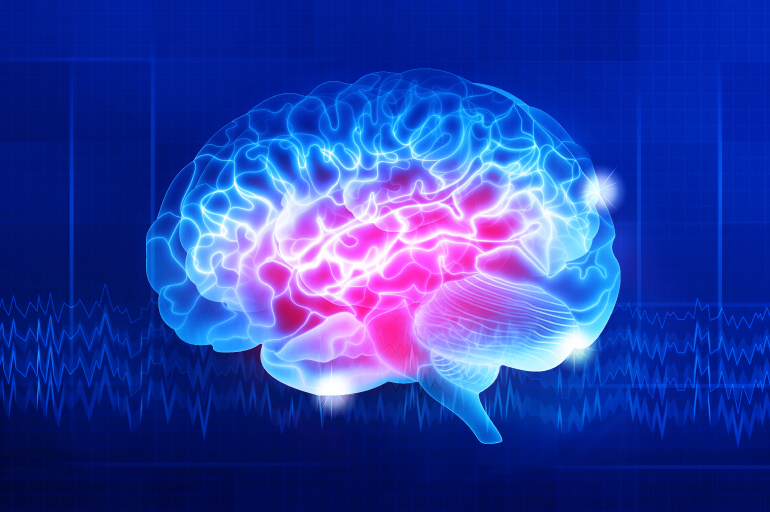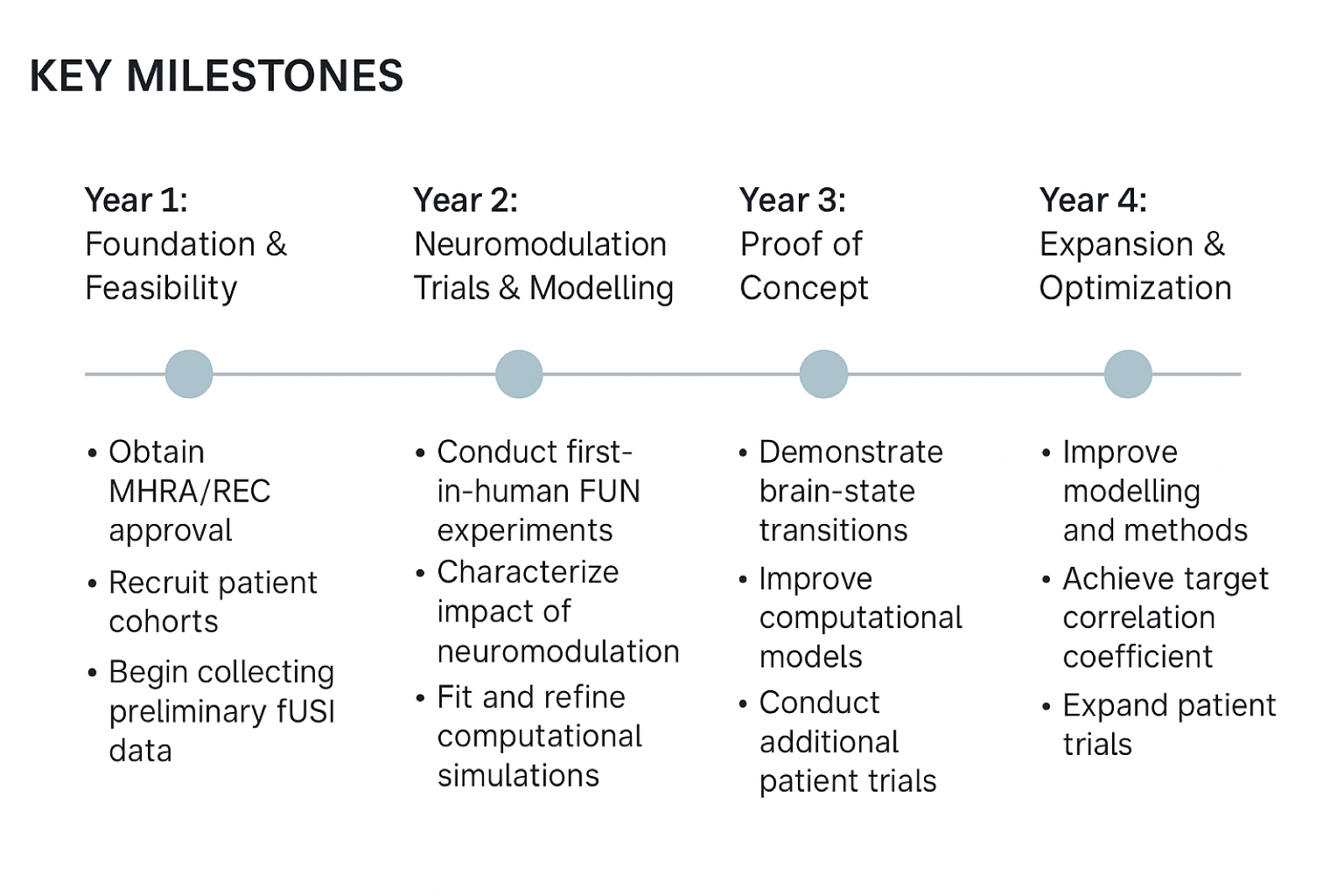Home » News and Events » Case Study » The world’s first mental health treatment using ultrasound

PHARMExcel CRO has partnered with Barking and Havering NHS Trust to manage a UK-based, investigator-led study testing the safety and effectiveness of a next-generation brain-machine interface. The clinical trial is funded by a grant from the Advanced Research and Invention Agency (ARIA). The innovative device, known as the Forest 1 device, uses ultrasound technology to stimulate the brain and help improve people’s mood and reduce depression.
The device has been developed by Los Angeles-based company Forest Neurotech.
Unlike current technologies such as deep brain stimulation, which only target a single area of the brain, this new technology can target the whole brain with pinpoint accuracy.
As the academic sponsor and project-lead, Barking and Havering NHS Trust brings scientific leadership and specialist clinical expertise. PHARMExcel, as CRO, ensures robust clinical trial management, regulatory oversight, and quality compliance to support the success of this ground-breaking study.
Together, the collaboration combines academic independence with commercial efficiency—accelerating the clinical pathway of a new therapy.
We provide a flexible, ‘pick and mix’ service offering – allowing the Sponsor to engage the specific services they need tailored to the study requirements which include:

This project demanded a UK CRO company experienced in first-in-human device trials and academic collaboration. PHARMExcel’s expertise in regulatory strategy, particularly with medical devices, will ensure that the UNI project maintains full compliance with UK MHRA and NHS R&D requirements.
Our agile team supports rapid ethics submissions and works closely with the Trust to align academic goals with commercial trial standards, ensuring the study launches on time, with patient safety and scientific rigor front and centre.
Through our proactive collaboration, the study will be able to begin assessing this novel technology’s clinical viability faster than traditional models.

Academic Clinical Trial Sponsor
Lead Clinical Investigator
"The opportunity to work on this study is hugely exciting as it has potential to make a real difference in improving the lives of people with mental health issues. We’ll be researching the safety of the device, and looking to see if we can improve symptoms of depression. It holds the promise of delivering a life-changing therapy for people with depression and anxiety who don’t respond to medication."
Aimun Jamjoom, Consultant Neurosurgeon and CI
Technology Developer
Key Team Members at Forest Neurotech:
Patient Stakeholders

PHARMExcel brings a commercially efficient, academically sensitive approach to the trial. As a development partner, we deliver an ISO-accredited infrastructure, expert project coordination, and clear regulatory pathways—enabling quality outcomes from the clinical trial.
“PHARMExcel understands the needs of academic-led innovation. Our team brings structure, speed, and quality to this complex neurotechnology study—ensuring patient safety, regulatory compliance, and progress. It’s a true partnership.”
Yvanne Enever, CEO & Founder of PHARMExcel
